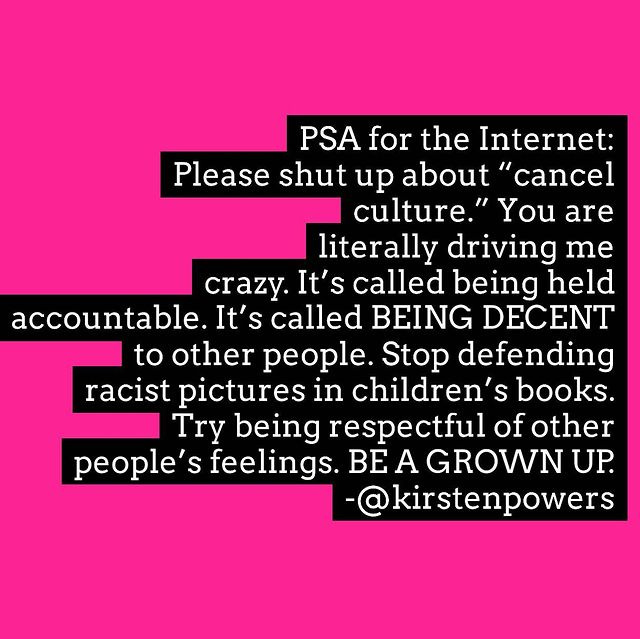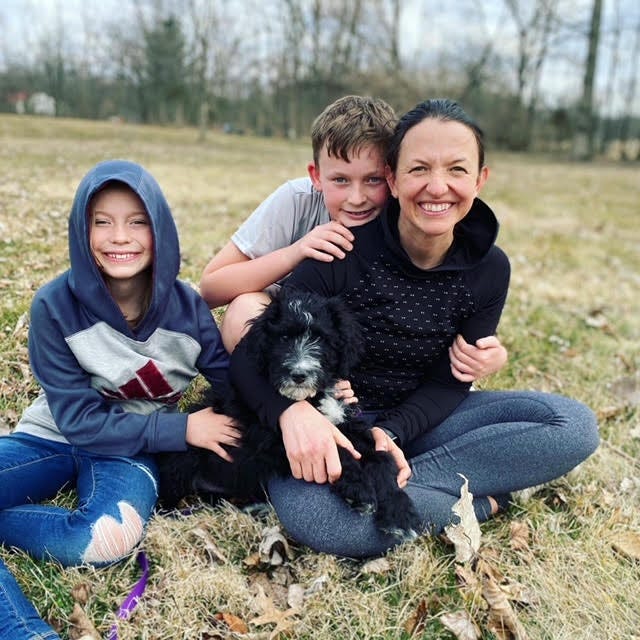Thanks for subscribing and reading! If you have a friend who you think would like this sort of thing, I’d love it if you would share it with them.
I have a confession: my kids didn’t get a flu shot until 2020. I read the data, but erred on the side of stuff that I already agreed with, and I honestly was only thinking of my kids’ health, not anyone else’s. I ranted about climate deniers, but didn’t listen to the overwhelming science behind the safety of the flu vaccine. After reading so much about Covid and how people that don’t have any symptoms or very mild ones are unknowingly vectors for the virus, I am embarrassed that I didn’t think more of my vulnerable neighbors when it came to our family taking the flu vaccine. I was wrong.
I just finished Adam Grant’s excellent Think Again: The Power of Knowing What You Don't Know. One of the reviews I read said, “this book would have saved my family if we would have read it before the Trump years.” It feels like a book that we could have used back before 2016, but better late than never, I guess. In it, Grant argues that we, as individuals, families, communities, and citizens, should discover and embrace “the joy of being wrong.” Changing our minds about something isn’t something to be critiqued; it is something to be praised. Changing your mind shows courage, flexibility, and humility, all attributes I want to embody more of.
There are a ton of things I’ve changed my mind about, especially in the last five years. I wrote here about my road to becoming affirming, and in that post I wrote:
In the Trump era, it certainly feels like we all need a little more encouragement to grow up, to look at an issue or situation with new eyes, a willingness to change our minds on long-held beliefs. To that end, I want to share my story of becoming openly affirming because I’ve grown and evolved on this issue, and I think it is important that we be more vulnerable about ways that we have changed, in hopes of giving others freedom to change too.
I was wrong or have changed my mind about all sorts of things related to my faith, my politics, my ideas around marriage, parenting, friendship, and adulting. The list is long. The philosopher Ken Wilbur famously says that new levels of consciousness “transcend and include” the previous levels - in his research, he shows how this integration happens throughout nature, not just in human consciousness. I understand this idea to mean that we move beyond our old ways of thinking while integrating the parts from previous stages that are still valuable.
My tendency in the past has been to look judgmentally at my old ways of thinking, feeling shame for my beliefs that I used to hold so tightly and often criticizing the people that still believed what I used to think. So instead of “transcending and including,” I “transcended and judged” myself and others about the ways I used to think. These days, I try to reflect back on my old beliefs, seeing how they got me to where I am today, and will be part of my future growth. I’m trying to hold a little less tightly to my beliefs, but hold more tightly and with more clarity about my values.
This is what has happened to so many Republicans since 2015. They held tightly to their beliefs about Republicanism instead of their values of smaller government, states’ rights, integrity, etc. So many Republicans rescinded their party-affiliation during the Trump years because they held tightly to their values and more loosely to their party loyalty. They recognized the inconsistencies and stayed true to their values instead of turning a blind eye to the ways in which the party leadership had strayed from their supposed values.
I’ve been thinking for a few years now that we need to applaud the growth and evolution that typically follows someone saying they were wrong or they changed their mind. Think Again is a handbook for how and why to do just that - and, it seems to me, that we need this guidance now more than ever.
So tell me: what’s something you’ve been wrong about lately?
Rants and raves
👍 Nomadland. This was beautifully done, and it made me sad. It also made me want to research when 15+ year mortgages became a thing because I’m beginning to wonder if being hamstrung by too big of a house is at the root of many of our societal ills.
👍 The Durrells. Grant and I loved this series a few years ago, but the kids asked if we could make it our new family movie night show after we finished All Creatures Great and Small way too soon. Durrells is possibly even better the second time around, even if we did have to explain what gonorrhea was to our eleven and eight year olds (😬).
👍 I finished this book too, and mostly really liked it. Check it out if you’re into how we were evolutionary designed to eat, move, sleep, socialize - and how we can recover some of those rhythms in modern life. I would like a follow up interview with the authors about what I saw as their blind spots, but it was a worthwhile read regardless.
👎 Spring forward. I have felt so crummy this week. I’m blaming it on DST even though I’m sure it’s also having a new puppy, a year anniversary of the pandemic and a good friend’s death, and the grey weather all week. Regardless, I’m trying to give in to the naps and early bedtimes that my body seems to be wanting.
Worth sharing this week
The conversation I started above about embracing being wrong inevitably ties into the whole cancel culture debate. I liked Jordan Green’s take on it, and I also really liked Kristen Powers getting a little spicy about it:
I finally did my what I’m learning and loving post for February last week. Hurry and check it out before I write the March one.
I loved this piece about the power of place in connecting with our ancestors. It reminded me of Wendell’s speech about the “boomers” (leavers) and the “stickers” (stayers). It seems like we tell more stories from the boomers’ point of view. I’d like to hear more from the stickers. Not because one is better than the other, but because we tend to romanticize the leaving versus the staying.
Quotable
If knowledge is power, knowing what we don't know is wisdom.
Adam Grant
Seasonal view of the week
We got a puppy: meet Wendell Berry Sterley. We are all smitten. And tired.
Cheers to seeking the joy of being wrong!
Sara






Great post, Sara. And hello, Wendell! You are adorable.
I've had a ton of things to rethink in the last year as I've become more radicalized than ever. I think the biggest thing would be the idea that police are necessary and generally benevolent contributors to the good of the society. I don't think I've carried a more wrong idea in my head as this. When one learns the history of police, and talk and LISTEN to people who experience oppression from police, who have justifiable reason to fear them no matter where they meet them, you'll know that story is false. In Missoula, people say, "Oh, but cops aren't bad here." That's because we are like 98% white folks. Ask the 2% what they think. Check your privilege. It is an institution that needs torn down and completely overhauled.